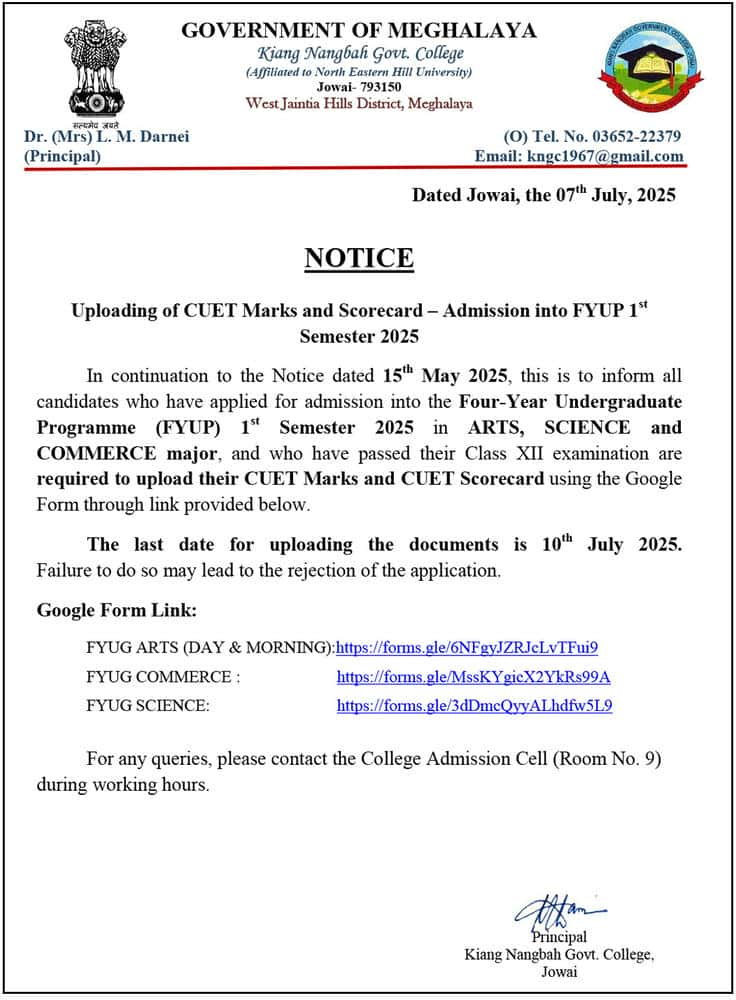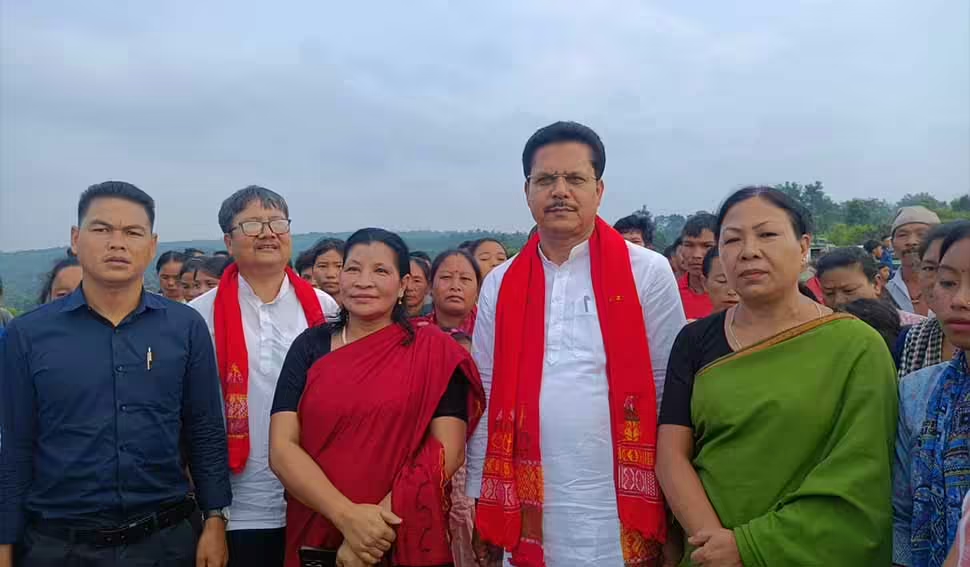Move to allot 9,000 bighas of tribal land to Adani Group, Cong calls it Yandabo treaty

The Assam government is reportedly moving forward with plans to allocate 9,000 bighas of land in Umrongso, located in Dima Hasao district, to the Adani Group for the establishment of what would be Asia’s largest cement plant. This move has sparked controversy, with the opposition Congress likening it to the “Yandabo Treaty,” referring to a historical event associated with land cession under duress.
A report suggests that the Directorate of Geology and Mining (DGM) in Assam has invited tenders for eight blocks of limestone exploration in the area. It is believed that the Adani Group is the favoured party for these settlements. The tender process has raised concerns, as it was conducted without prior consultation with the Dima Hasao Autonomous Council (DHAC), which governs the region under the Sixth Schedule of the Indian Constitution and holds autonomous powers over such matters.
The lack of consultation with the DHAC has intensified opposition to the project, as it is seen as undermining the autonomy of the council and the local population’s control over their land and resources. This issue could escalate as local political and civil society groups challenge the move, fearing loss of land and environmental impact in the region.
Residents of nine Karbi villages in Umrongso, who have lived there for generations, have voiced strong opposition to the government’s decision to allocate the land to the Adani Group and claimed that they have no alternative land for settlement.

A leader of the Karbi Students Association (KSA) expressed concerns, stating, “We have no other alternative land for settlement, where will we go?” The residents fear displacement and the loss of their ancestral land, which has deep cultural and historical significance to their community.
Assam Pradesh Congress Committee (APCC) president Bhupen Kumar Borah visited the villages along with a high power delegation and compared the situation to the infamous Yandabo Treaty of 1826, which led to the Burmese ceding Assam to British rule. He criticized the government’s handling of the tender process, arguing that the government does not own the land and has no authority to allocate it without the consent of the local residents or the Dima Hasao Autonomous Council (DHAC).
Borah accused the authorities of attempting to settle the deal in favour of the Adani Group without proper consultation, likening it to the historical betrayal of Assam’s sovereignty.
Borah has strongly criticized the Assam government for its decision accusing the BJP-led government of undermining the rights of indigenous communities.
Borah pointed out that the tender for the project was floated without the knowledge or consent of the landowners, which contradicts the protections established by the Sixth Schedule of the Indian Constitution, designed to safeguard tribal lands from encroachment.
Borah highlighted the irony of Chief Minister Himanta Biswa Sarma’s promises to protect indigenous communities, while in practice, decisions like this threaten their land and livelihoods. He further accused Sarma of misusing constitutional provisions for political gain, stating, “The government did not understand the hearts of the tribal people here.” Borah also alleged that retired IFS officer MK Yadava, now serving as Special Chief Secretary (Forest), played a key role in the issue, referring to him as “the Verappan of Assam” and citing pending cases against Yadava in the National Green Tribunal (NGT).
The Congress leader vowed to stand by the local tribal people, stating that the party would challenge the government’s actions in the Lok Sabha, Vidhan Sabha, and on the streets.
He also expressed the possibility of taking legal action, including moving the Supreme Court if necessary. Borah emphasized that if the Governor is unable to resolve the matter, the Congress will escalate it to the President of India.
All Assam Tribal Students Union (AATSU) president Hareswar Brahma, has raised serious concerns over the Assam government’s decision to allocate the land to the Adani Group for a large cement factory. He criticized the government’s plans to evict nine tribal villages in the area, which would displace hundreds of families from indigenous communities, including the Dimasa, Karbi, Kuki, and other ethnic groups, to facilitate the deal with Adani.
Brahma accused the BJP-led government of prioritizing capitalist interests over the rights of the indigenous people, stating, “The state government is trying to serve the interest of the capitalist by evicting hundreds of families.” He also highlighted the irony of the government’s inaction regarding non-tribal encroachment on tribal lands, citing that despite a Gauhati High Court notification (PIL 78/2012), over 5 lakh bighas of tribal land illegally occupied by non-tribals remain untouched, while tribal people are being evicted from their own lands.
AATSU strongly condemned these actions, viewing them as an attack on tribal rights and cultures, which are protected under the Sixth Schedule of the Constitution of India. Brahma emphasized that the Sixth Schedule areas, such as Dima Hasao, are intended to safeguard the land, resources, traditions, and socio-economic welfare of tribal communities. As per constitutional law, land in these areas cannot be transferred to non-protected classes, making the government’s decision highly questionable.
Brahma affirmed that AATSU will continue to oppose the government’s anti-tribal actions, standing firm in defence of the indigenous communities’ rights to their ancestral lands and resources.

Leave a Reply